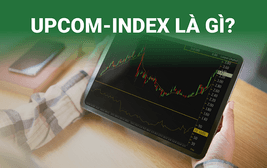Before starting to invest in stocks as well as choosing the right type of stock, it is very important to learn thoroughly about stock indexes. You will often encounter indicators when trading such as: EPS, ROE & ROA, P/B or Beta, etc. And most investors have also heard the concept of PE index. So actually, what is the PE index? What does this indicator mean? Let's find out more details with PHS through the article below.
What is the PE Index?
The Price to Earning Ratio (PE) is an index that measures the relationship between a stock's market price (Price) and earnings per share (EPS).
According to the "Father of Value Investing" Benjamin Graham, this financial index is one of the quickest and easiest ways to determine if a stock is overvalued or undervalued. In addition, the PE index also shows how much investors are willing to pay for a dollar of dividends of securities or profits of companies listed on the stock exchange.
Currently, the formula for calculating the P/E ratio is agreed as follows:
P/E ratio = Market price per share (Price)/Average earnings per share (EPS)
In which EPS is known as the profit per share outstanding in the stock market and distributed by businesses. This index represents the ability to generate profits of the stock or the business itself.
EPS = (Profit after tax – Preferred dividends) / Number of ordinary shares outstanding
Example: At the time of 07/2021, each X share is trading at a price of 20 USD. The profit generated or earnings per share of X over the same time period is $2. Then, stock X has a P/E ratio of 20/2 = 10. That is, investors are willing to pay $10 in exchange for $1 in earnings per share of X.
Meaning of PE
P/E ratio is very important for businesses as well as investors' investment decisions. From the above formula, we can understand that the P/E ratio represents the amount of money that you are willing to spend in exchange for a dollar of profit from the stock. P/E ratio is also considered as a measure to help investors judge and invest in shares of a business.
1. For the stock market in general
In stocks, PE is considered one of the most important metrics in investing. Together with the P/B index, it creates a complete picture of the company's stock chart as well as the investment market in general.
2. For businesses
It can be said that PE contributes to helping businesses understand their business status. The higher the PE ratio, the more efficient the business is. And vice versa, the lower or negative the PE, the business needs to consider and adjust the development strategy to suit the general situation of the business.
3. For investors
As PHS shared, PE is one of the most important metrics for every investor. This is a relatively accurate picture of the business performance of the business. That's why investors know whether the money they "poured into" is being used well or not, making a lot of profit, and can compare and contrast the potential of businesses to choose from. Choose the most profitable investment possibilities.
So what is the best PE ratio?
In addition to understanding the necessary information about the concept of PE index as well as its meaning, a question that many investors are very interested in is "What is the best PE ratio?"
In general, the higher the PE ratio in the stock, the more efficient the operation of the business is. In addition, investors' expectations for the business, more precisely, the profit potential of the stock is very large. However, this is not always correct. In some cases, a business is losing money or profits are on a downward slope, causing EPS to fall. Since then, the PE ratio has also increased.
Thus, in order to determine how good the PE index is, investors should not only look at the available data, but need to thoroughly understand the relevant variables, from which they can understand the causes of the failure. The company's PE ratio changes.
Summary
Through the above article, PHS hopes to contribute to helping investors better grasp information in determining the price and return of their investment through the PE index. Follow PHS to update other knowledge about financial investment - securities.











